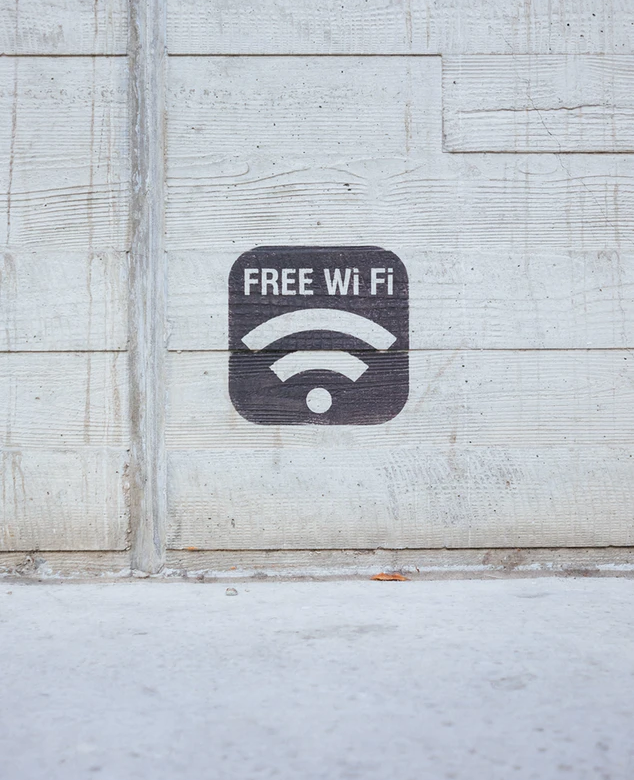
Whether we’re in the home, on the street or sat at work, the broadband we enjoy is constantly evolving and improving. From the days of dial-up through to broadband, LAN to wireless and 2G to 4G, we’ve always been moving in one, upward direction.
With the need, and indeed expectation, for faster internet comes a drive for big improvements in download speeds, software and hardware all around the globe. These developments for quicker, more reliable internet are not something that will be slowing down any time soon.
Which brings us on to one of the next big developments – 5G. The next generation in mobile broadband and set to take off where 4G has left off. Promising faster downloads and bigger bandwidth for all us smartphone addicts, 5G is set to launch this year.
With the potential promise to transform mobile internet, there may be one question going through your mind – Will 5G replace Wi-Fi?
The simple answer is no. As to why…
Wi-Fi is Wherever You Go
We’ve already said that there isn’t just a need for internet connection, but an expectation for it to be available (and usually, for it to be free). Whether it’s a public Wi-Fi network or private, free or not, Wi-Fi is extremely commonplace and more often found t obe present than not. Globally, Wi-Fi is one of the most common protocols to be found anywhere and everywhere.
There isn’t much nowadays that doesn’t connect to Wi-Fi. The watch on your wrist, the phone in your pocket, the tablet in your bag, the laptop in your briefcase. Most of these devices automatically seek and connect to any available Wi-Fi network.
And it’s not just personal devices. In your home, your heating, lighting, cooker, fridge, and probably even your television are all connected to your network so you can control them remotely or via a home hub.
And here lies the reason that 5G cannot replace Wi-Fi. The way 5G is installed means that it needs specific hardware to be able to connect. Therefore, it can’t be replacing Wi-Fi in homes and business all over the globe.
Last year, over half of the world’s internet traffic was carried over Wi-Fi. Wi-Fi is extremely important, relied upon and isn’t going anywhere anytime soon. And the Wi-Fi Alliance would agree. (Of course they would, it’s their standard).
It’s Not Just Mobile Broadband That’s Improving – There’s Wi-Fi 6 & WiGig Too
Mobile internet such as 4G isn’t the only thing to be getting an upgrade. If you’ve heard of the approach of 5G then you’ve probably also come across Wi-Fi 6 (or 802.11ax) which is also on its way.
Just like 5G, Wi-Fi 6 is promising a whole host of improvements which change the fundamentals of Wi-Fi and greatly improve the user experience. As with 5G, new compatible hardware will need to be purchased in order to utilise the new features
The great thing about Wi-Fi 6 however, is that no device will be left behind. The features will have backward compatibility meaning that Wi-Fi 6 hardware and devices will also work with previous Wi-Fi standards.
Benefits of the new feature will be flexible channel sizes to enable smart network management, support for the 6GHz spectrum, multi-user MMO uplink and downlink plus so much more.
The second generation WiGig standard, IEEE 802.11ay, is expected to be published this year. The next generation WiGig, also known as 60GHz Wi-Fi, will see it’s main improvements in speeds rivalling 5G of 10GB per second
The Impracticalities of Mobile Internet
If you had the choice to connect to Wi-Fi (safely) or use mobile internet, which would you choose? I think the overwhelming response to that question would be connect to Wi-Fi – The thought of having to rely solely on mobile internet is a little uncomfortable. If the option is there, then Wi-Fi will always win and that’s yet another reason why 5G won’t be replacing it.
Impracticality #1. The nature of mobile broadband like 4G or 5G is that customers are tied into long-term contracts and that’s not something that will change. Coupled with this, these customers will also have strict limits on how much data they will be able to use. This will be one of the reasons as to why the answer to our question above will often be Wi-Fi.
Impracticality #2. 5G internet relies upon frequencies that find it difficult to penetrate buildings. They also don’t travel very far. This is therefore a bit of a problem for internal use, making Wi-Fi a much more preferable choice
There is no doubt that 5G will indeed revolutionise mobile broadband, but due to the facts we’ve spoken about above, it won’t be replacing our beloved Wi-Fi.
